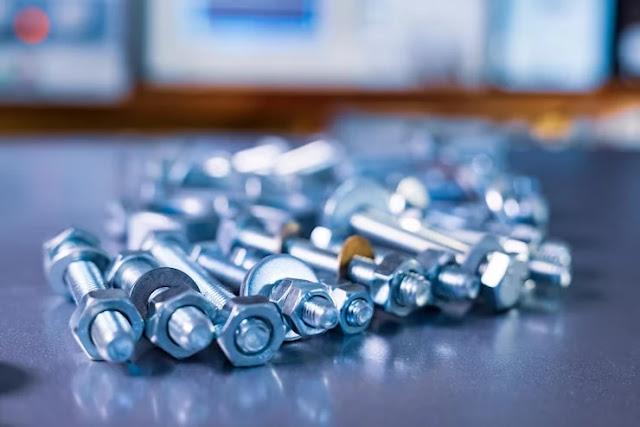The Significance of Top-Tier Industrial Fasteners in Aerospace and Automotive Sectors
The aerospace and automotive sectors are pillars of innovation, efficiency, and safety. Within these industries, countless components are working in tandem to ensure that every vehicle, be it an aeroplane or a car, operates at its peak performance. One of the most critical components often overlooked is industrial fasteners. These small yet integral pieces play an outsized role in ensuring the safety and reliability of vehicles. This article delves into the importance of high-quality fasteners in these vital industries.

Ensuring Safety Above All
In the world of aerospace, the margin for error is minuscule. Every part of an aircraft, from the wings to the tail, needs to withstand extreme pressures and varying temperatures. Quality fasteners ensure that all these components remain intact during flights, preventing potential catastrophes. Moreover, the varying altitude and turbulence encountered during flights demand the utmost resilience from every component. Fasteners that aren't up to the mark could compromise the structural integrity of the aircraft. Regular inspections often place a special emphasis on checking the health of these fasteners. The objective is clear: ensuring that every journey, every takeoff, and every landing is as safe as possible.
Enhancing Durability and Longevity
For automobiles, the story is much the same. Cars face a myriad of challenges, from potholed roads to harsh weather conditions. Using top-grade industrial fastenings helps in guaranteeing that vehicles can face these challenges head-on without suffering from premature wear and tear. Additionally, a car's lifespan is often determined by how well it can withstand repeated stresses. This durability is amplified by the strength of its fastenings. Furthermore, high-quality fasteners can better resist corrosion, a common issue in automotive parts.
Streamlining Maintenance Procedures
A vehicle's maintenance becomes considerably easier with dependable fasteners. When technicians and engineers work with engineering fasteners that are consistent in quality, they can predict wear patterns and address potential issues even before they become significant problems. This predictive maintenance is crucial in preventing costly overhauls or replacements. It's also worth noting that when fasteners are of high quality, the risk of them getting stripped or damaged during routine checks is considerably reduced. Thus, technicians can confidently work, knowing they won’t inadvertently cause more harm.
Boosting Efficiency and Performance
Whether it's a car aiming for maximum fuel efficiency or a plane designed to cover long distances without refuelling, every bit of performance counts. Reliable fasteners ensure that all components of these machines work seamlessly together, leading to optimum performance. It's not just about holding parts together; it's about ensuring there's no energy wasted due to loose or inefficient connections. A well-fastened component can reduce vibrations, leading to smoother operations and less wear on other parts. In the world of competitive racing or long-haul flights, this efficiency can be the difference between winning and losing, or reaching a destination on time.
Economic Implications
Beyond safety and performance, there's an economic dimension to consider. Using top-tier fasteners reduces the frequency of maintenance and replacement, translating to significant savings in the long run. For companies in the aerospace and automotive sectors, this can mean the difference between profitability and financial challenges. Consider the costs associated with recalls due to faulty parts, or the downtime caused by unscheduled maintenance. These are not just monetary expenses but can also harm a brand's reputation.
Conclusion
Industrial fasteners might not be the first thing that comes to mind when thinking about the aerospace and automotive sectors, but their significance cannot be understated. Their role is paramount, from ensuring safety and enhancing durability to streamlining maintenance and boosting efficiency. As technology continues to evolve, the demand for high-quality automotive fasteners and their counterparts in aerospace will only grow, reinforcing their essential status in these industries. Moving forward, it's imperative for manufacturers and industry leaders to prioritise the quality of these components, recognising their profound impact on the overall functionality and safety of vehicles.

No comments